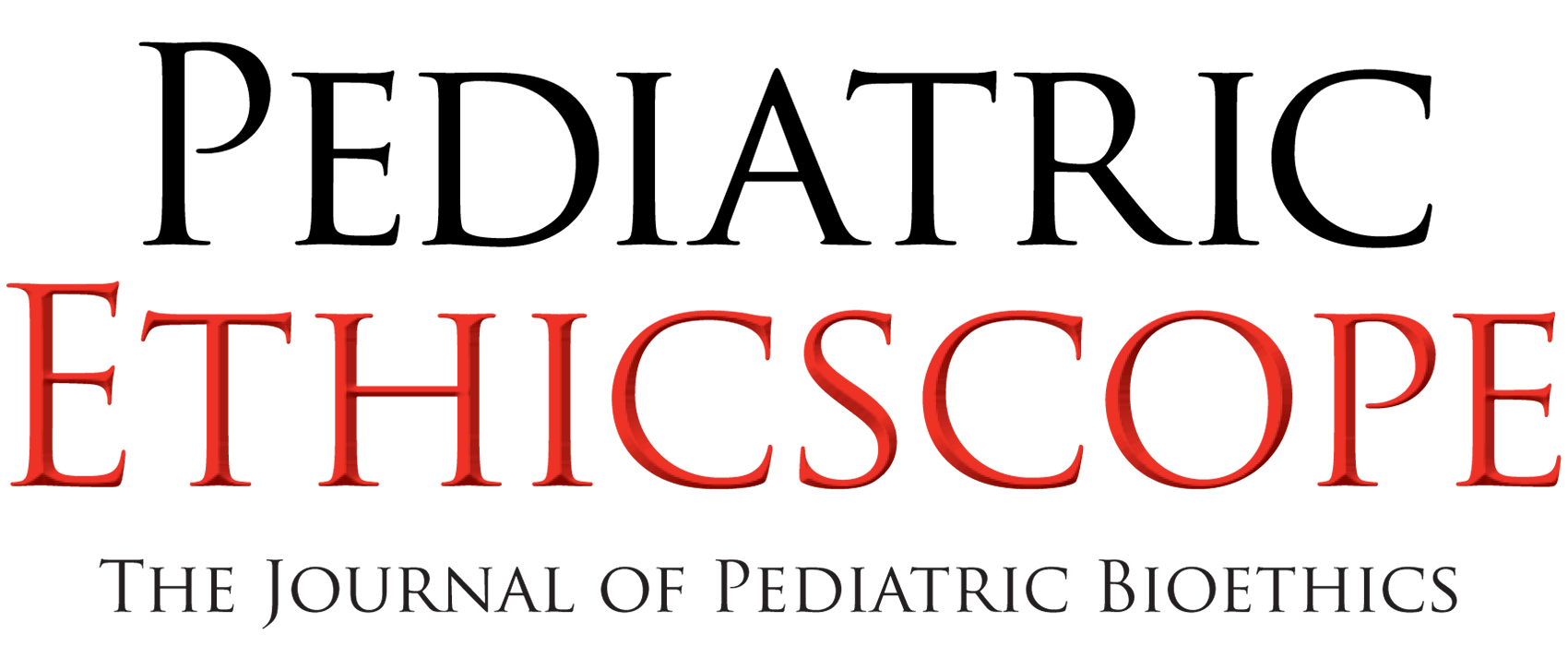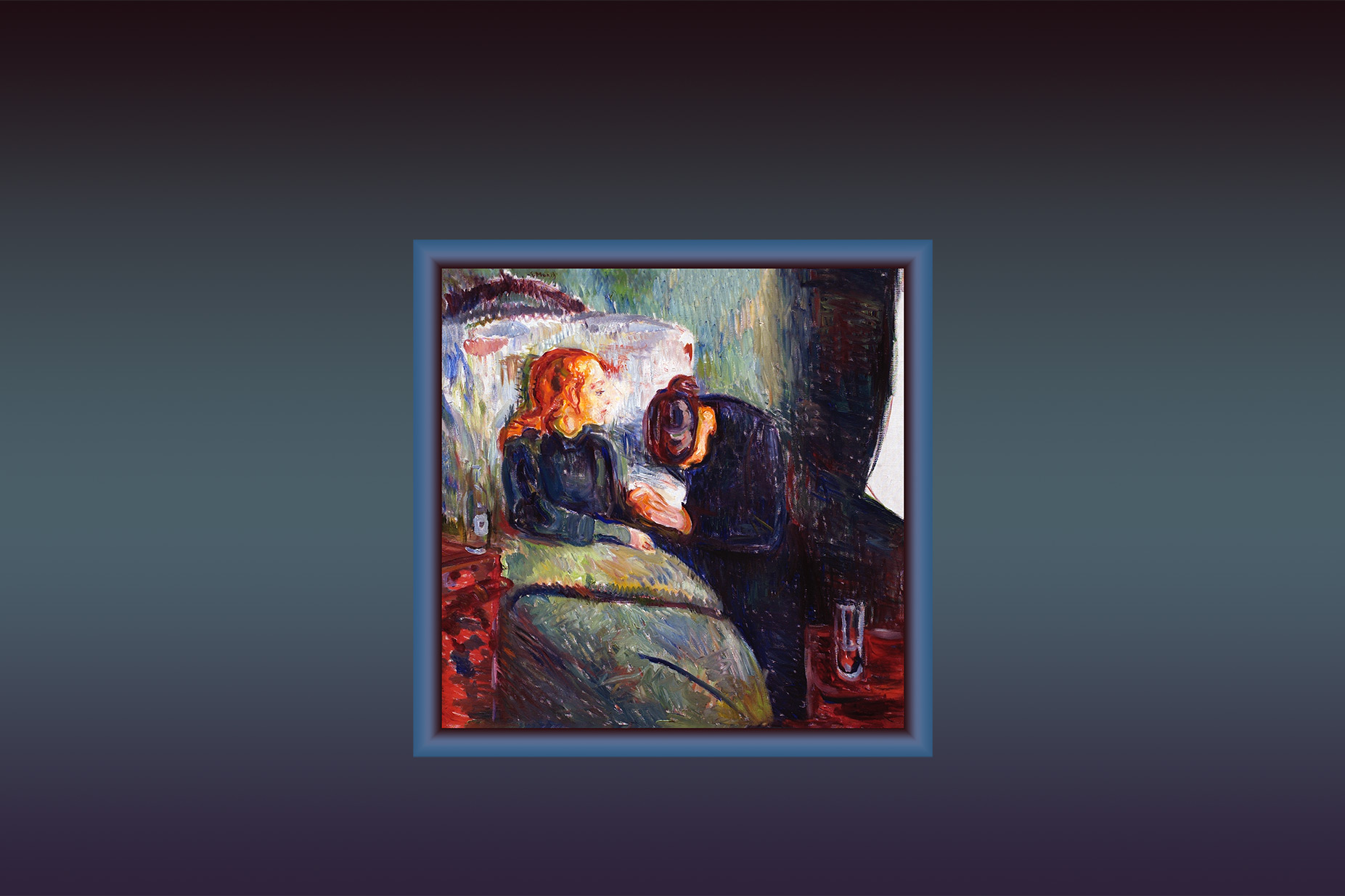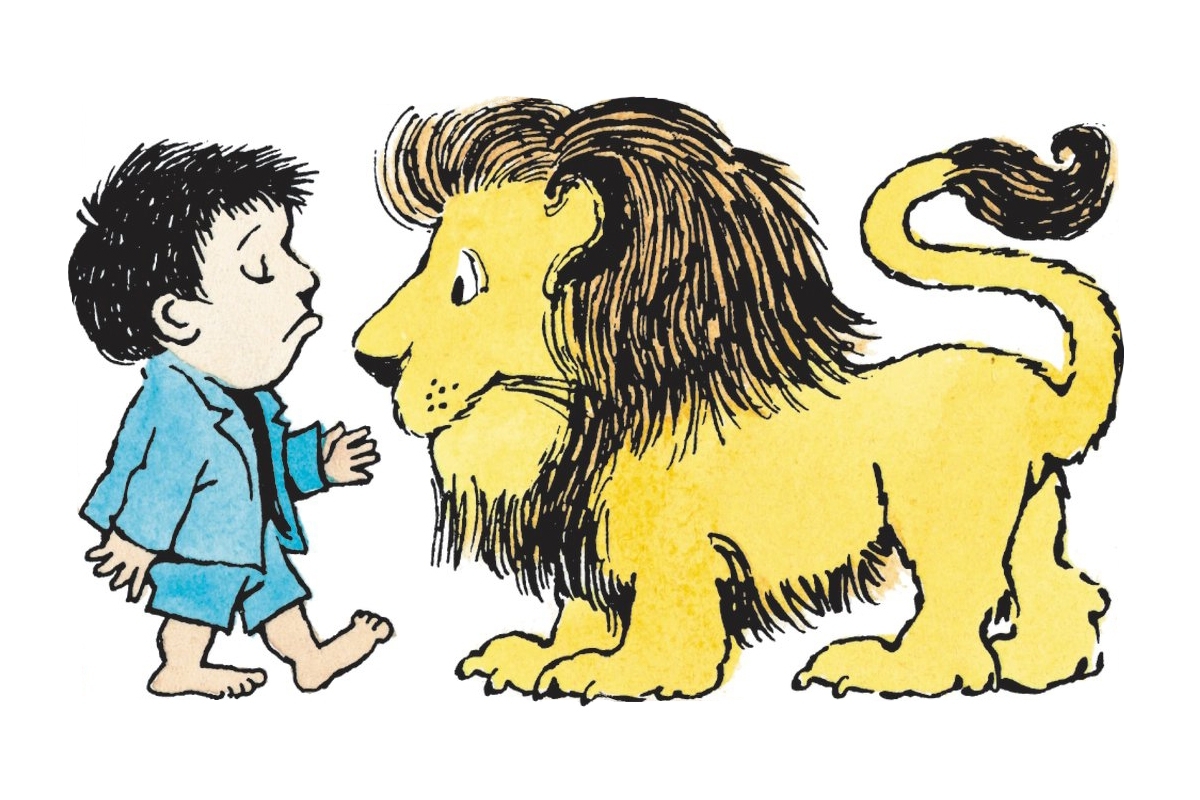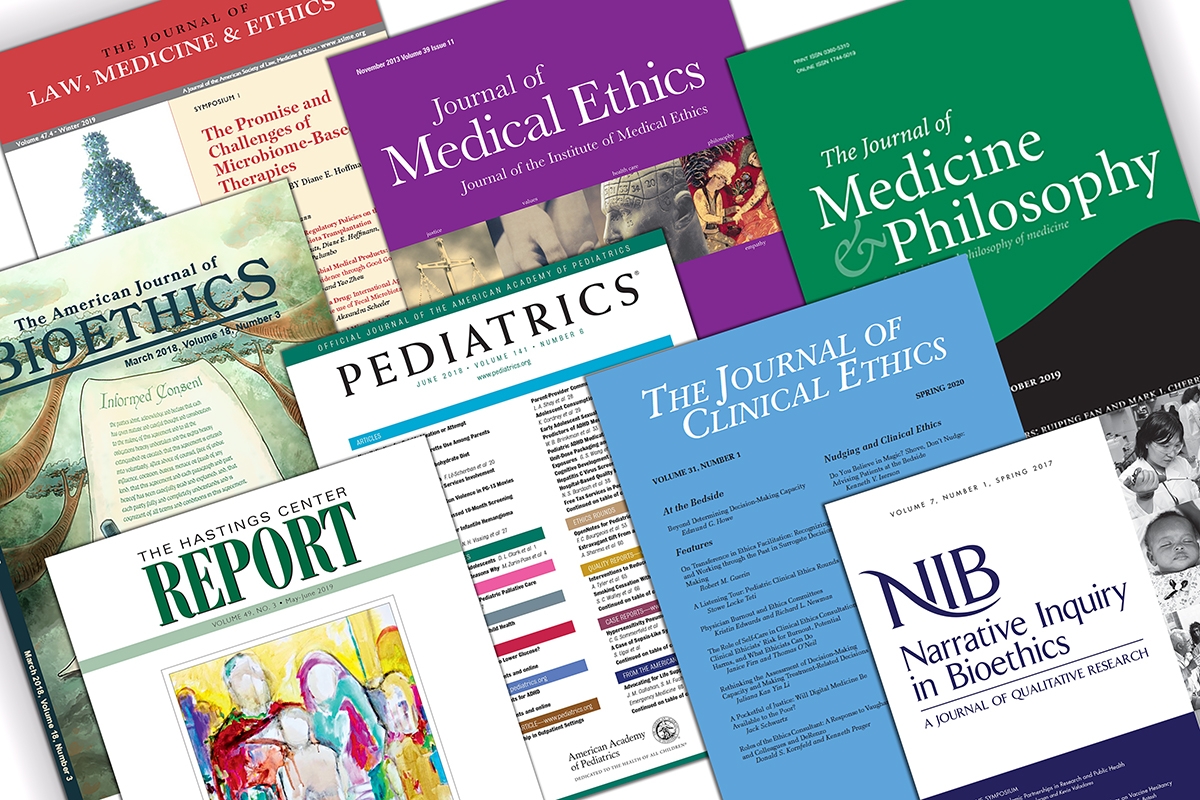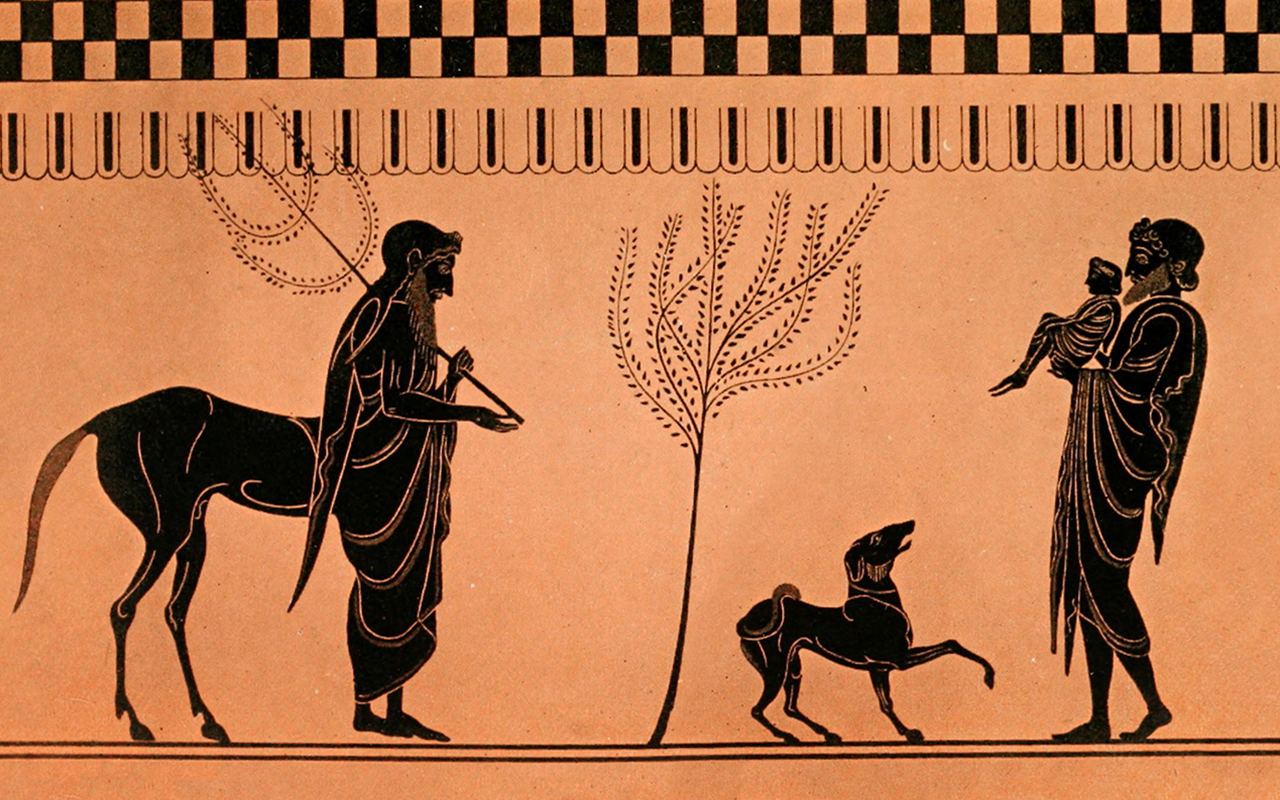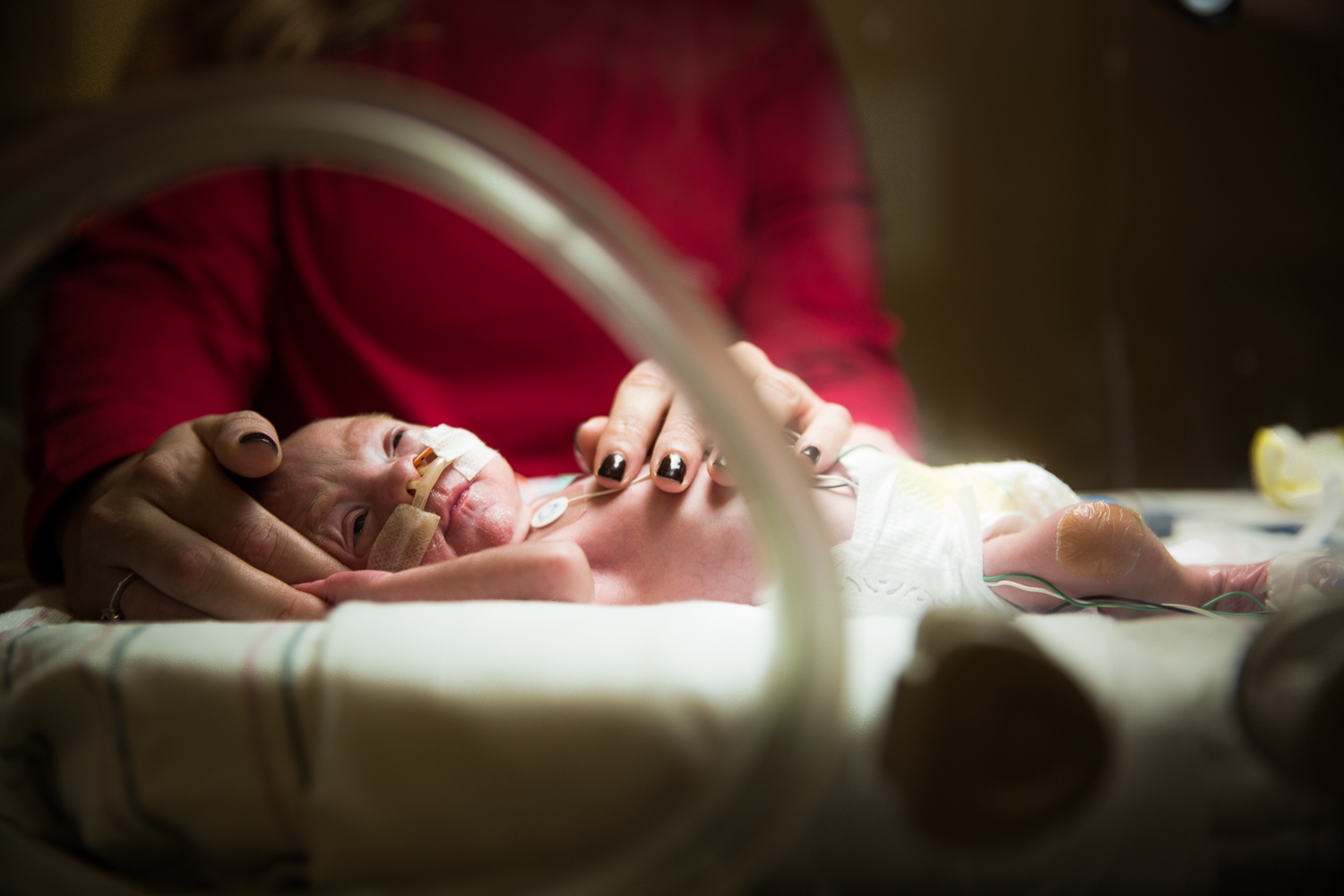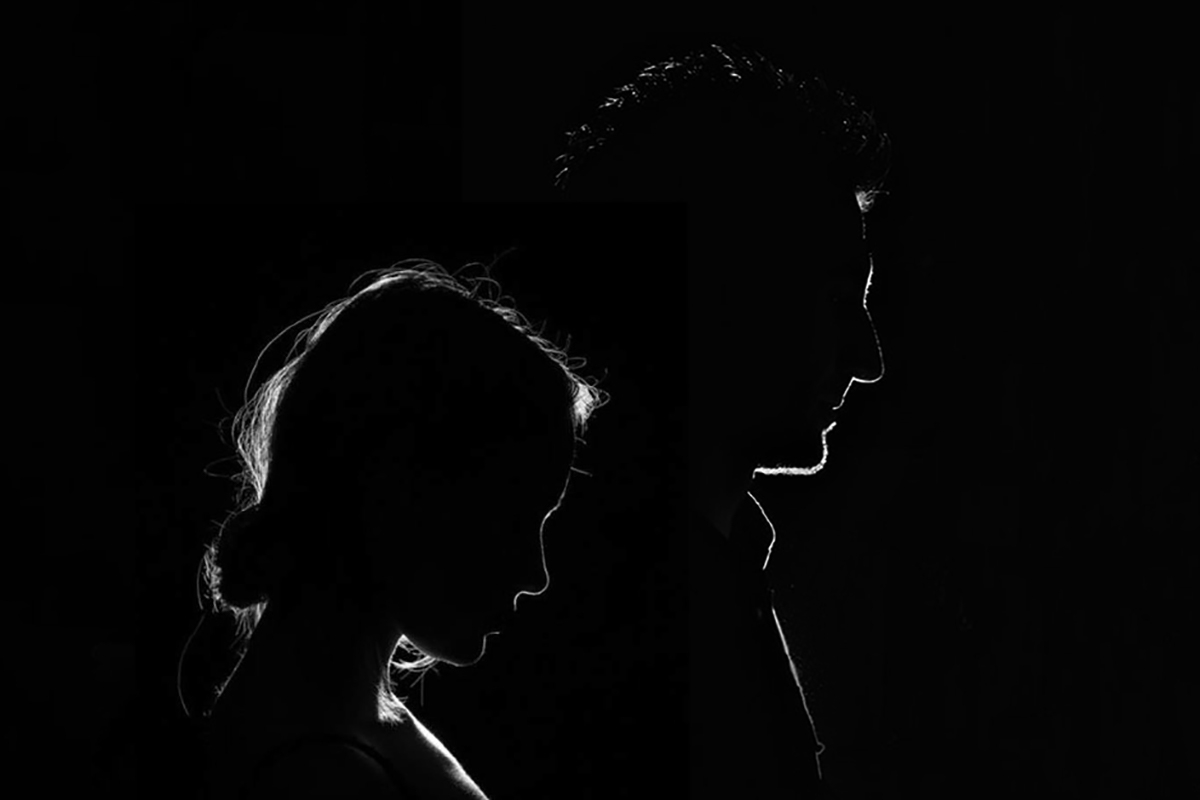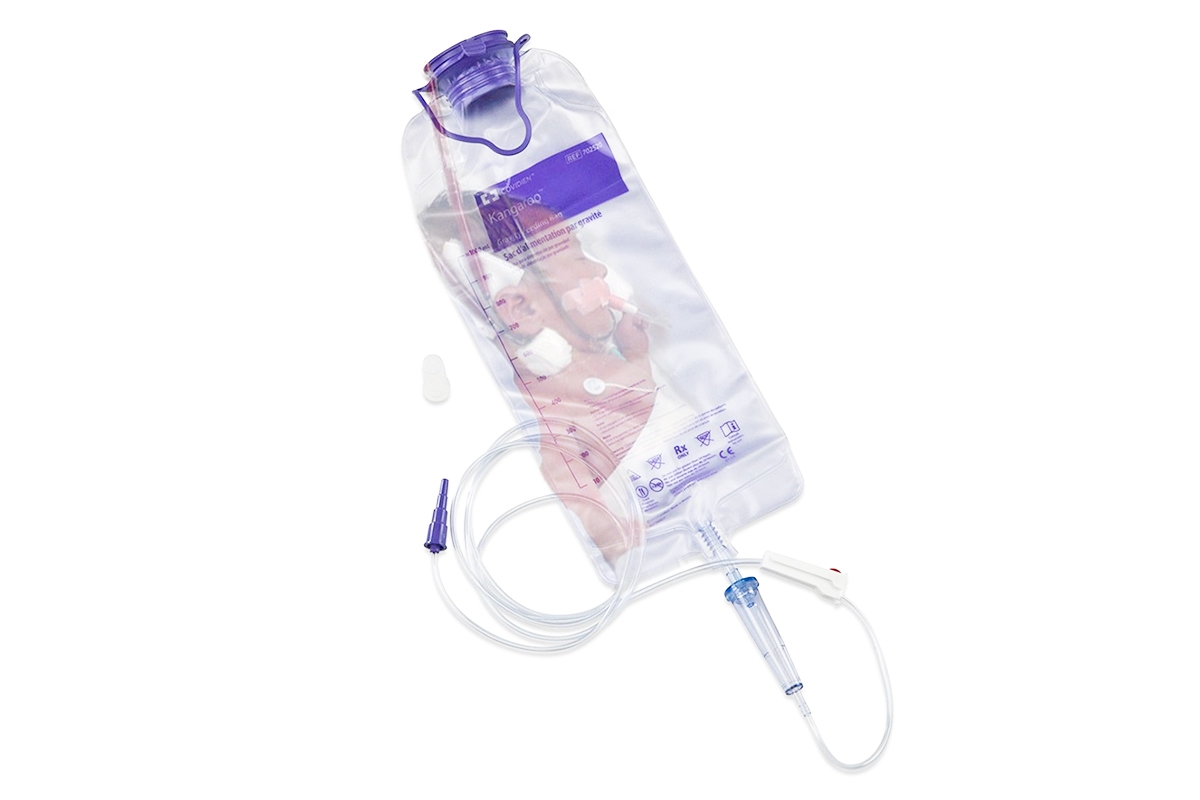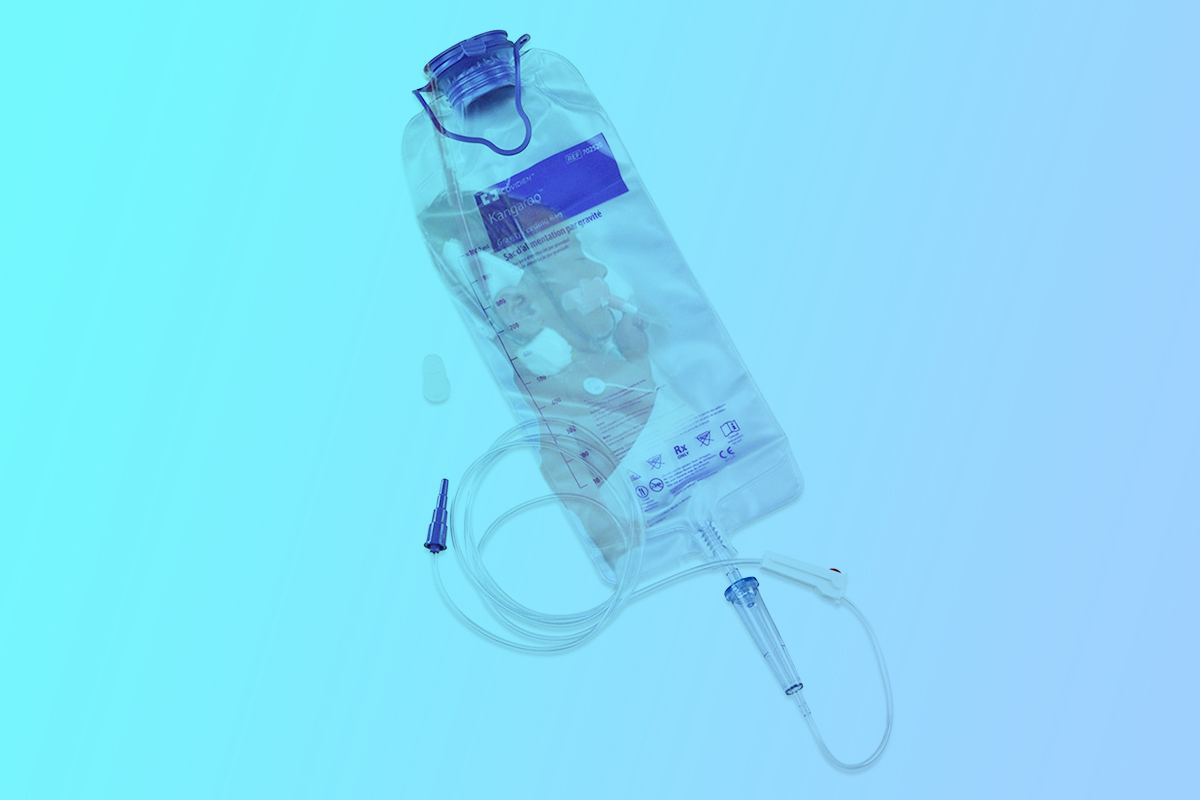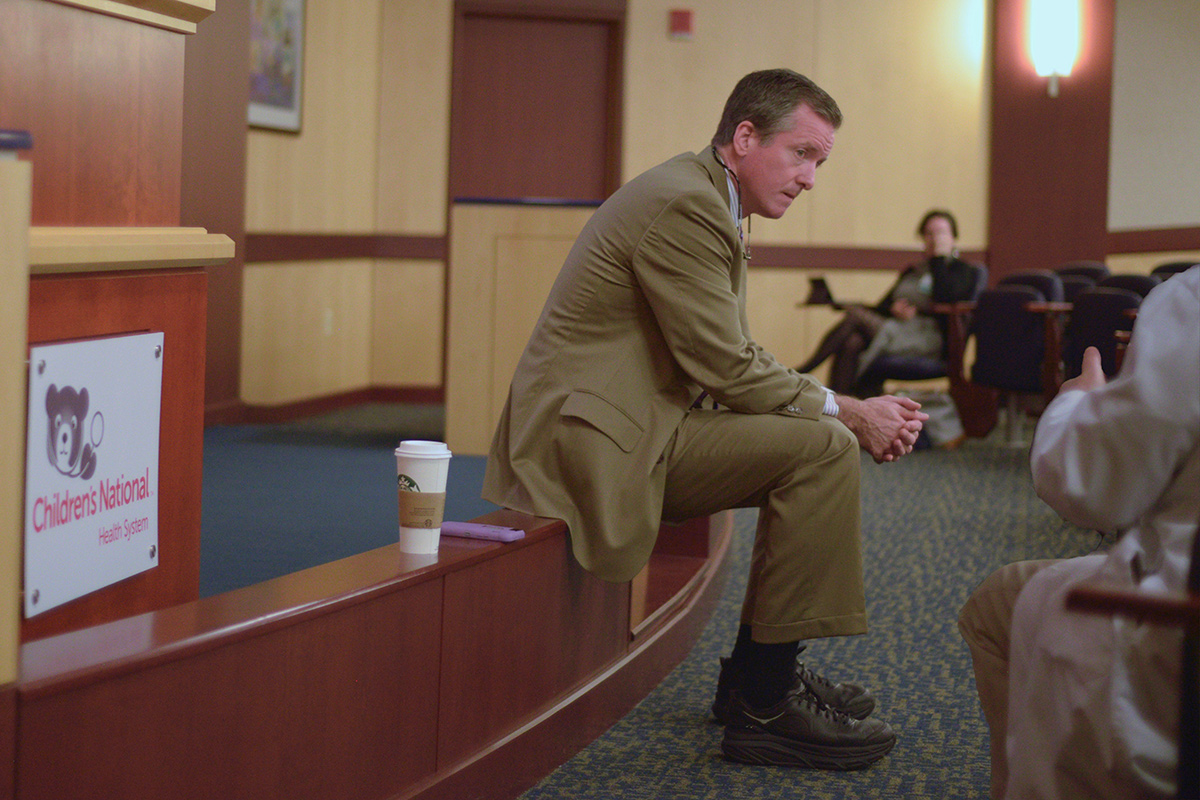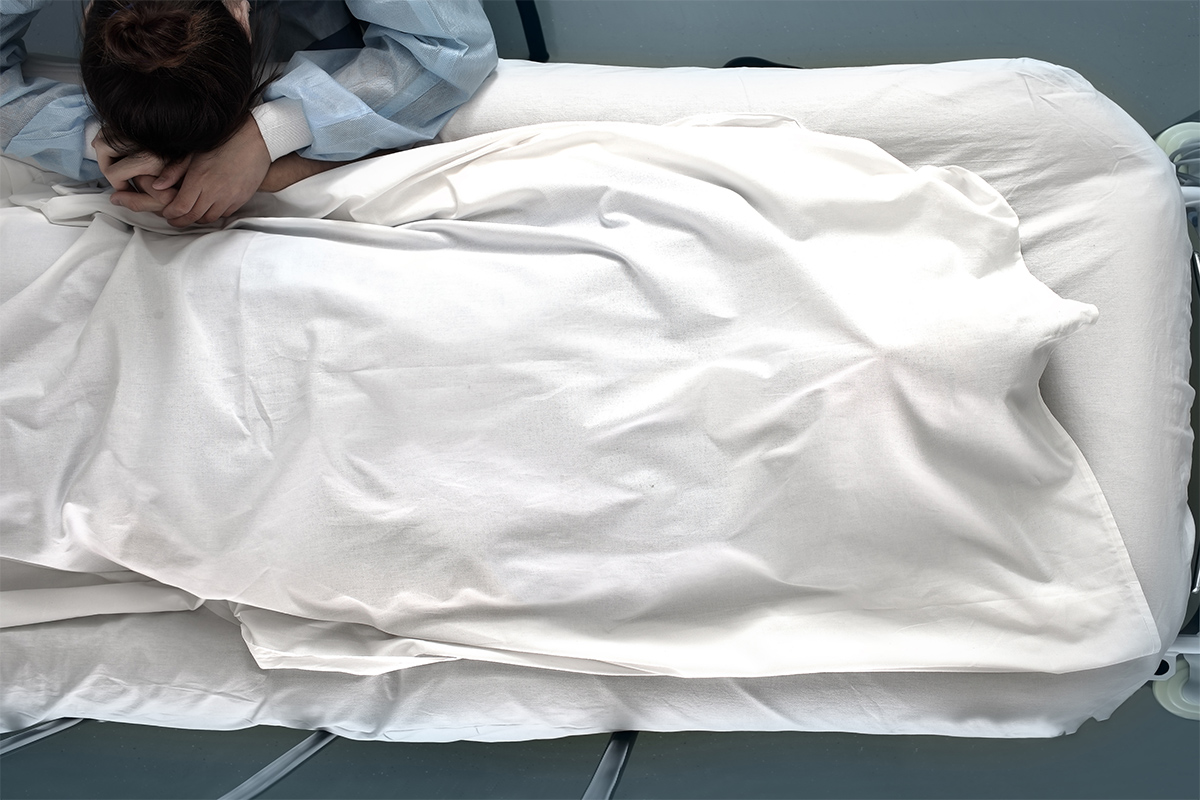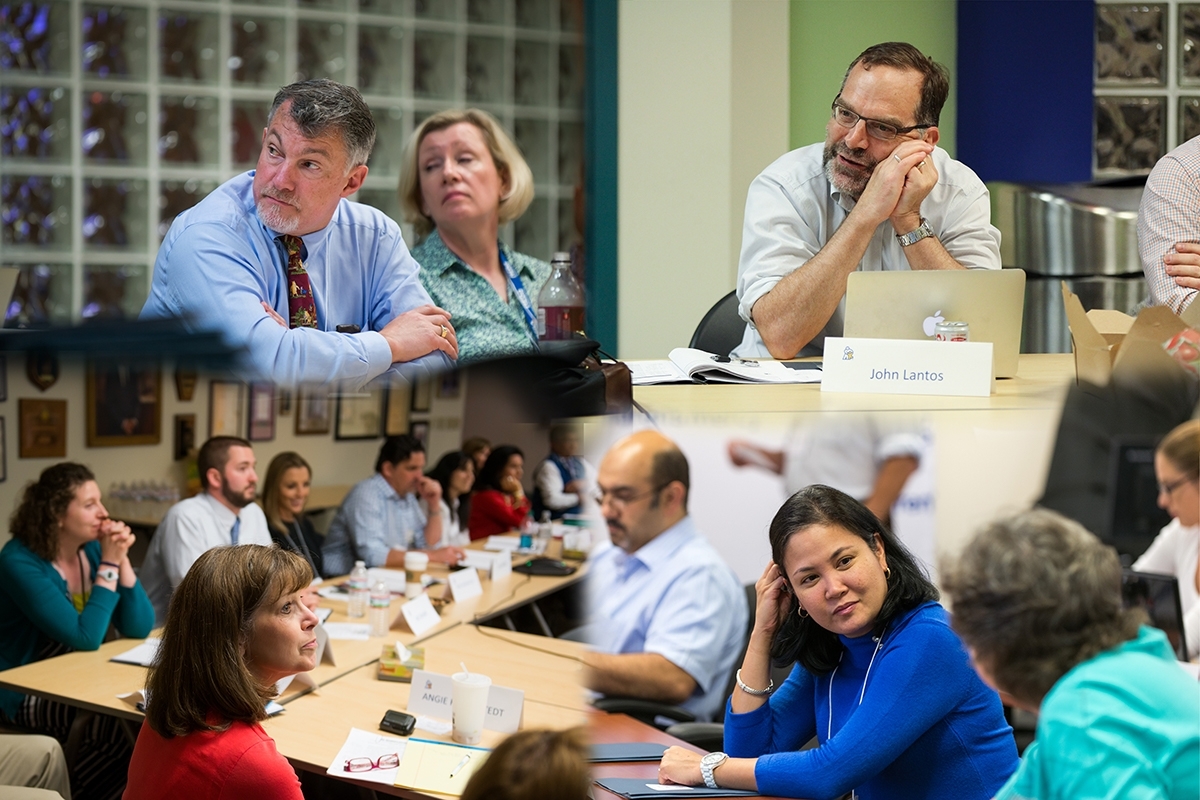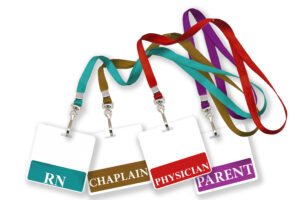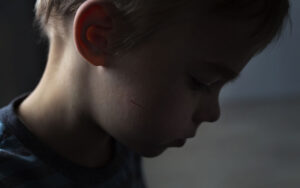Use the grey accordion bars below to access the articles in each issue. Once issues are prepared for print, PDFs are made available on each respective article page. The issue PDFs at left below may be used for viewing or downloading the entire print version.
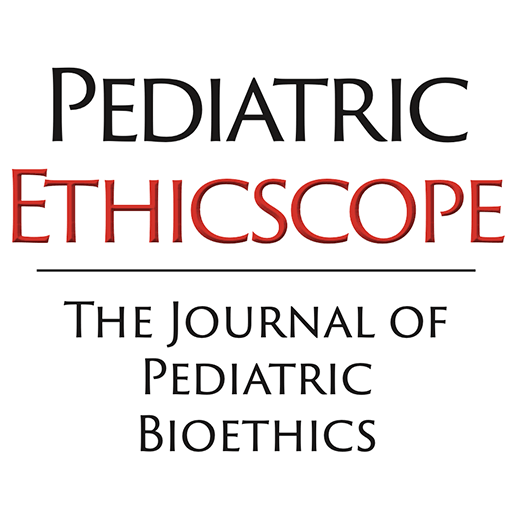
Print issue in Production
Pediatric Ethicscope Volume 32 Number 2
Editorial volume 21 number 2: We have introduced a number of new elements to the Pediatric Ethicscope website over the past several weeks. These changes were prompted by several requests from readers, and most of the changes are aimed at aiding readers wanting to cite and download Pediatric Ethicscope articles for research or teaching purposes. About the cover; about the articles.
Disengagement and non-adherence of an adolescent with chronic disease potentially leading to life-threatening complications is a common and distressing challenge encountered by pediatricians. Most clinicians intuitively focus on balancing the patient’s emerging autonomy with beneficence and non-maleficence. We believe ‘good care’ may be better understood through the lens of care ethics.
The Use of Suffering in Pediatric Bioethics and Clinical Literature: A Qualitative Content Analysis
“Suffering” is a concept that is frequently invoked in discussions about medical decision-making in pediatrics. However, empirical accounts of how the term is used are lacking, creating confusion about the concept and leaving parents and providers unsure about the appropriate ways to account for it in pediatric decision-making. We conducted a qualitative content analysis of pediatric bioethics and clinical literature in selected journals from 2007 to 2017 to determine how authors define and operationalize the term when referring to issues in pediatric treatment.
Competing Interests in Pediatric Eating Disorders Patients
Use of sedation and restraints is sometimes the only means available to stabilize medically fragile eating disorders patients. This case study chronicles the management of an 11-year-old patient transferred from inpatient child psychiatry unit to the adolescent medicine service for nutritional rehabilitation.
So why is it that we clinicians are so often uneasy when talking about patient suffering? One simple explanation would be that, in our era of the most extraordinary scientific discoveries, this topic has been neglected because it is so profoundly subjective, impossible to measure, quantify or compare. I propose an additional explanation; entering the world of suffering compels a response that we are not sure we can deliver. Our doubts originate in shortcomings of the health care system itself, neglect by the educational system, and from the burden of our own suffering.
Book Review: Handle With Care by Jodi Picoult
Jodi Picoult's Handle with Care chronicles a family’s suffering through life and medical care decisions in the face of disability.

Print issue in Production
Pediatric Ethicscope Volume 32 Number 1
Overview of volume 32 issue number 1: Informed consent in neonatal clinical trials, home medical care, biases is data-driven medicine, patient worldviews, moral courage, and physician shadowing.
Ethical Analysis of Normative Biases In Data-Driven Medicine
Information technology in the 21st century has resulted in physicians coming to rely on data. However, when clinicians are conditioned to rely on data and suppress clinical judgment, it becomes difficult to manage rare conditions where data is not available. The following discussion recounts one family’s experience with clinical counseling on a rare diagnosis and highlights these issues.
Considerations for Informed Consent in Clinical Trials Involving Neonates
Conducting clinical research in newborns requires special protections due to the high vulnerability of this patient population and their parents. This paper presents guidance developed by a multidisciplinary group of bioethicists and patient advocates considering patient- and parent-centric approaches to informed consent in neonatal research in the context of an ongoing clinical trial for neonates with spinal muscular atrophy (SMA).
Medical Complexity Leading to Foster Care
Pediatric patients who require medical care that is beyond the ability of their family to administer and/or maintain poses numerous ethical questions. Assuming the best interests of the child necessarily compel foster placement, what practical and ethical issues remain?
Empathy and the Divide Between Medical and Patient/Family Worldviews
A lack of empathy while standing in as a translator for another physician's patient and family raised the following question: can one be culturally insensitive to one's own culture? The following narrative explores the divide between medical and patient/family worldviews.
A nurse recounts her experience as a new NICU nurse raising an issue about the appropriateness of a procedure with the rest of the medical team. The narrative addresses issues of power imbalance, ethical controversy, medical decision-making, and moral distress.
Clinical and Surgical Shadowing: A First-Person Account and Ethical Analysis
Shadowing has become, if not an explicit requirement, important for medical school admission. Shadowing has come under criticism for undermining bioethical principles such as patient autonomy and privacy. Critics argue the practice of shadowing violates the physician's fiduciary duty to the patient. These criticisms are largely based either theoretical concerns or anecdote. This account reviews the criticisms of shadowing and assesses the claims.
Ethics Consult Report: Withdrawal of Artificial Nutrition and Hydration
A medical team considers withdrawal of artificial nutrition and hydration supporting a 6-month-old girl with complex cardiac disease, devastating neurological injury, and ongoing, unmanageable pain. Diffuse neurological injury and severe ischemia in all four limbs offers a bleak prognosis. Drawing on the bioethics literature on the subject, the following case presentation and analysis illustrates how a medical team and family can approach such a situation.
Clinical Ethics Consult Commentary: Promoting Human-Centered Care
When technologically advanced medicine fails to “rescue [a patient] intact from the conditions of her birth,” professionals must rely even more squarely on the foundation of good medicine – human-centered caring. While we do not disagree with Mr. Teti’s ethical analysis, we believe that ethics consultants can (and should) do more to support the medical team in achieving this foundational goal.

Print issue in Production
Pediatric Ethicscope Volume 31 Number 2
When Parents and Providers Disagree
Conflicts between parents and health care providers are among the most common of the ethical issues encountered in pediatrics. In this article, three cases are presented along with an ethical framework for thinking about cases in which parents and providers disagree.
Pediatric Ethicscope Volume 31 Number 1
Overview of Pediatric Ethicscope 2018 Volume 31 Number 1: Embracing diagnostic uncertainty; ECMO referral; moral language following pediatric death; ethical issues in genetics research; Children's Mercy Bioethics.
Referral for Extracorporeal Life Support in Newborns with Hypoxic Ischemic Encephalopathy
These...life-sustaining innovative therapies that require an ethical framework for shared decision-making with families and medical teams. We suggest a way of structuring team education to benefit urgent ECLS decisions for newborns with moderate to severe hypoxic ischemic encephalopathy (HIE).
Embracing Diagnostic Uncertainty
Doctors revise their diagnostic strategy to provide a timely and meaningful prognosis in accordance with parental goals. This narrative discusses issues of diagnostic uncertainty and the value of relying on clinical gestalt when trying to prioritize medical tests for a sick patient.
Dialogue with the Ethicist: Chris Feudtner MD, PhD
Chris Feudtner MD, PhD, MPH visited Washington, D.C. this past Spring to give the Sanford L. Leikin Memorial Lecture for Ethics in Pediatric Care at Children’s National Medical Center. Following the lecture, he sat down with hospital staff, ethics committee members, and local ethicists to discuss a past case.
Transgressing Moral Imperatives
Care providers of critically ill pediatric patients encounter ethically complex and morally distressing situations in their practice. This study sought to identify whether providers remark on ethical conflicts or note moral distress following recent in hospital pediatric death.
The decision to discuss sudden unexplained death in epilepsy (SUDEP) presents a complicated ethical picture with potentially conflicting principles. The neurologist must decide how to disclose and discuss the problem of SUDEP, balancing the desire to help families by empowering them, without doing harm by overwhelming them with fear.
Ethical issues in Genetics Research
While not different than with other kinds of research, issues in genetics research involving children can present differently and can be more challenging to manage
Doctor, I want BRCA testing for my girl
In 1995, the medical establishment concluded genetic tests in minors should not be done outside of diagnosis of a treatable disease. The AAP concluded likewise in 2001 and 2013. A new phenomenon is emerging: young women of BRCA positive mothers are requesting genetic testing, and positions have softened with the recognition that some exceptions can be justified.
The Inclusion Of Children In Non-therapeutic Medical Research
The debate about non-therapeutic pediatric research occurs over the balance between protecting child participants and ensuring the knowledge we need to threat the conditions children suffer from.
Education in Ethics: Children’s Mercy Bioethics Center Certificate Program in Pediatric Bioethics
The ethical issues in pediatrics can vary considerably from those in adult medicine. Thus, ethics education generalized for adult care is not necessarily relevant to the specific issues that arise in pediatric settings. The Children’s Mercy Bioethics Center’s Certificate Program in Pediatric Bioethics is the only program in the world that focuses exclusively on pediatrics.
Pediatric Ethicscope Volume 30 Number 2
No articles Found
